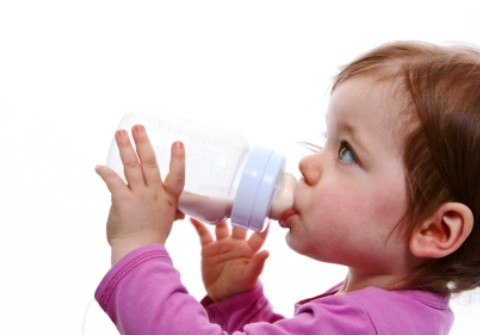Dehydration can lead to serious health problems for your baby if not treated quickly, therefore, it is vital you understand how dehydration can occur and the signs of the condition.
Dehydration occurs most often when a baby is ill and experiencing vomiting or diarrhea. This loss of fluids and electrolytes puts your baby at risk. Fevers also increase the risk since babies have relatively small fluid reserves and high metabolic rates causing them to lose water and electrolytes easily when under stress.

Signs of dehydration in babies:
- Decrease in the number of wet diapers
- Decrease or absence of tears when crying
- Dry mouth (dry lips)
- Eyes and fontanel (the soft spot on head) appear to be sunken
- Irritability
- Less elasticity to the skin
- Excessive sleepiness
- Increased thirst
Treatment of infant dehydration
If symptoms of dehydration are noticed, an oral rehydration solution such as Ceralyte, Gastrolyte or Pedialyte is often recommended by pediatricians. It is important to treat immediately when the condition is first suspected since it is easier to prevent dehydration or treat mild dehydration than it is to correct a serious loss of fluids.
The amount of re-hydration solution needed will depend on the baby’s weight.